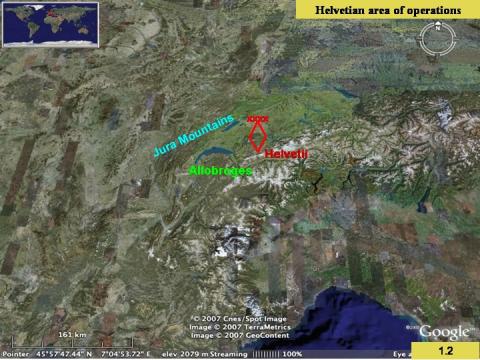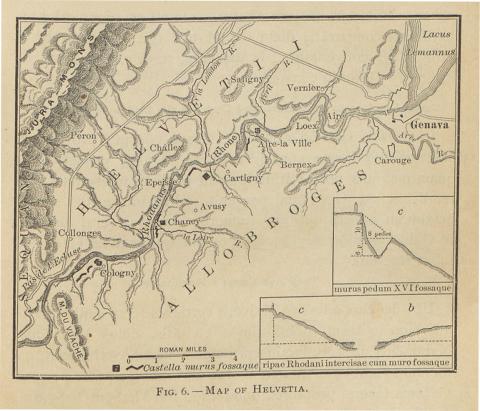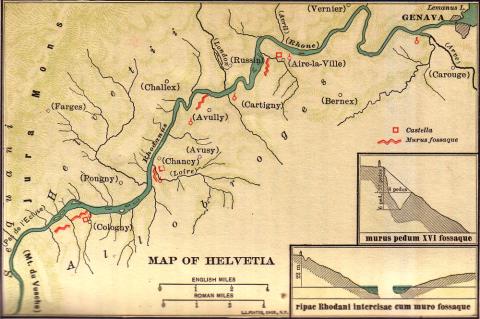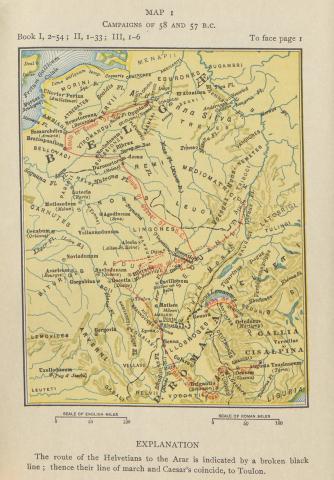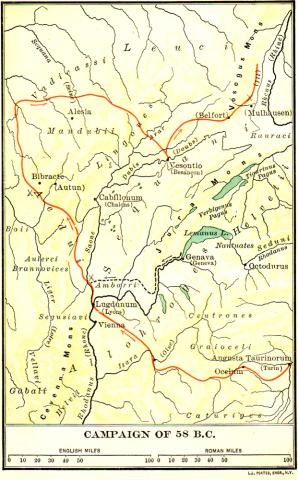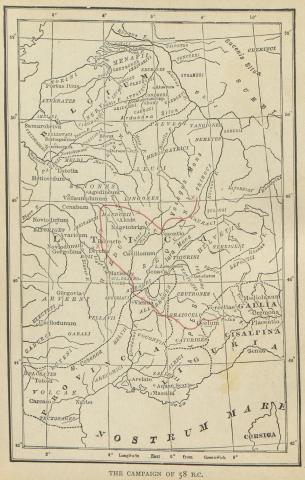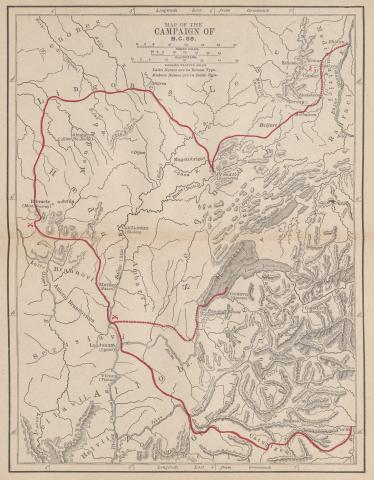Apud Helvētiōs longē nōbilissimus fuit et dītissimus Orgetorīx. Is, M. Messālā et M. Pupio Pīsōne cōnsulibus, rēgnī cupiditāte inductus coniūrātiōnem nōbilitātis fēcit, et cīvitātī persuāsit ut dē fīnibus suīs cum omnibus cōpiīs exīrent: perfacile esse, cum virtūte omnibus praestārent, tōtīus Galliae imperiō potīrī. Id hōc facilius iīs persuāsit, quod undique locī nātūrā Helvētiī continentur: ūnā ex parte flūmine Rhēnō lātissimō atque altissimō, quī agrum Helvētium ā Germānīs dīvidit; alterā ex parte mōnte Iūrā altissimō, quī est inter Sēquanōs et Helvētiōs; tertiā lacū Lemannō et flūmine Rhodanō, quī prōvinciam nostram ab Helvētiīs dīvidit. Hīs rēbus fīēbat ut et minus lātē vagārentur et minus facile fīnitimīs bellum īnferre possent: quā ex parte hominēs bellandī cupidī māgnō dolōre adficiēbantur. Prō multitūdine autem hominum et prō glōriā bellī atque fortitūdinis angustōs sē fīnēs habēre arbitrābantur, quī in longitūdinem mīlia passuum CCXL, in lātitūdinem CLXXX patēbant.

